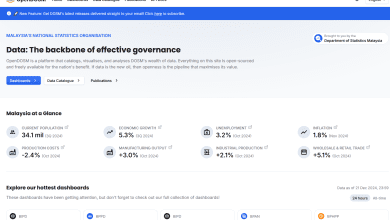Although dengue is still a number one public health threat, it is heartening to note that the dengue fatality rate is somewhat declining overall for the country. With the change in weather which is favouring the dengue virus vector we should continue to be vigilant. We should also be on alert as this virus has the potential to mutate under ‘stress’.
Destroying breeding sites of dengue mosquitoes has proven to be the most effective and excellent way to control the spread of this deadly dengue virus. We should focus our priority on destroying aedes breeding sites at all times. The authorities should keep a sharp look out for abandoned and unmonitored construction sites and foreign workers’ settlements. These places are known to be notorious breeding grounds for dengue mosquitoes. Some experts (Virologist) suspect the dengue virus may be circulating in the highly mobile foreign workers population.
Whatever it is, we should not let our guard down on this rampaging aedes mosquitoes onslaught. Keeping our house clean and participating in gotong royong activities will go a long way to keep all of us safe from the mosquito-borne disease.
Having said that, I wish to point out that gotong royong campaigns at dengue endemic areas is associated with some element of inherent risk. Sprucing and mass clearing activities especially at the mosquito resting sites/habitats inadvertently exposes one to the mosquitoes. The chances of one being bitten by a mosquito during these clearing activities is relatively high.
I have come across individuals who have participated in gotong royong activities in dengue endemic areas falling sick with dengue infection. Those participating should take the necessary safety precautions such as using mosquito repellents, etc. It is safer to do fogging first before carrying out any large-scale clearing work in dengue endemic areas. The authorities should consider reviewing the safety guidelines or SOPs for gotong royong programmes and other community-based voluntary activities that has the potential to inadvertently expose people to mosquito bites.
S. Param


